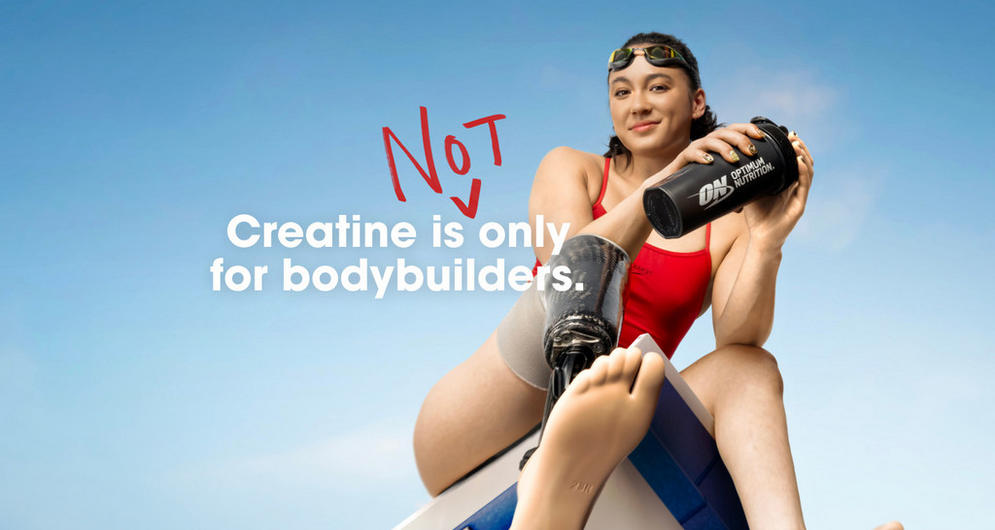By Mark Evans, Optimum Nutrition, Nutrition & Education
Truth Unlocked
Creatine benefits extend beyond bodybuilding: Creatine increases muscle energy production rates, boosting performance in high-intensity activities like sprinting or resistance training. It’s not just for weightlifters—it’s also useful for team-sport and endurance athletes, and even those recovering from injuries.
When you think of creatine, you might picture a bodybuilder flexing in the mirror during a heavy gym session. But here’s the truth: creatine is not only for weightlifters and bodybuilders—it's for anyone looking to enhance performance and gain additional benefits.
What is creatine?
Creatine is a naturally occurring compound found in your muscles. Your body produces it in the liver and kidneys, and it’s also found in small amounts in foods like red meat and fish. When supplemented in the diet as creatine monohydrate, it helps replenish energy in your muscles, improving performance in high-intensity activities.
What does creatine do?
Supplementing with creatine monohydrate, such as ON Micronized Creatine or Platinum Creatine Plus, increases the availability of adenosine triphosphate (ATP)—your body’s main energy source. This provides more energy to improve power during short, high-intensity efforts like weightlifting or sprinting.
Beyond the gym—who else can benefit?
Creatine isn’t just for gym-goers. Research shows benefits for a wide range of athletes:
- Team sports athletes: Supports sprinting, jumping, and repeated-sprint performance—key in football, rugby, basketball, and hockey.
- Endurance athletes: Complements resistance and sprint work often used in training. Creatine may also support muscle glycogen replenishment when taken with carbohydrates after exercise.
- Injured athletes: Supplementation may help reduce muscle loss during periods of immobilisation, which can positively influence recovery timelines.
Creatine increases physical performance in successive bursts of short-term, high-intensity exercise.
Additional benefits backed by research
- Creatine supports sprint and repeated-sprint performance.
- Creatine aids muscle glycogen replenishment when paired with carbohydrates.
- Creatine may reduce muscle loss during injury-related immobilisation; it is considered safe and effective for both men and women.
References
- Hultman, E., et al. (1996). Muscle creatine loading in men. Journal of Applied Physiology, 81(1), 232–237.
- Kreider, R. B., et al. (2017). International Society of Sports Nutrition position stand: safety and efficacy of creatine supplementation in exercise, sport, and medicine. Journal of the International Society of Sports Nutrition, 14, 18.
- Antonio, J., et al. (2021). Common questions and misconceptions about creatine supplementation: what does the scientific evidence really show? J Int Soc Sports Nutr, 18, 13.
- Green, A. L., et al. (1996). Carbohydrate ingestion augments skeletal muscle creatine accumulation during creatine supplementation in humans. American Journal of Physiology, 271, E821.
- Hespel, P., et al. (2001). Oral creatine supplementation facilitates the rehabilitation of disuse atrophy and alters the expression of muscle myogenic factors in humans. J Physiol, 536, 625–633.
- Op ’t Eijnde, B., et al. (2001). Effect of oral creatine supplementation on human muscle GLUT4 protein content after immobilization. Diabetes, 50, 18–23.







